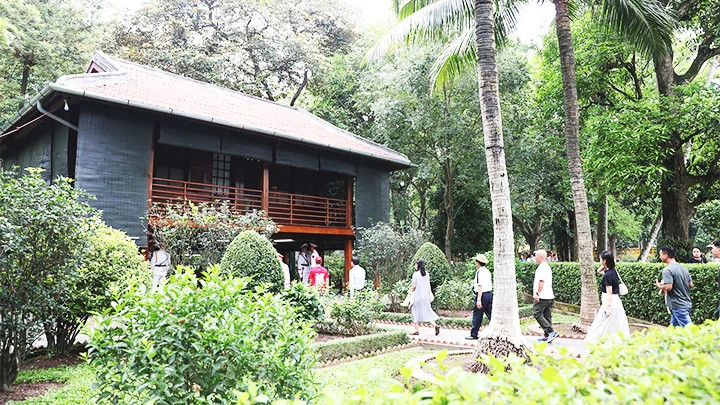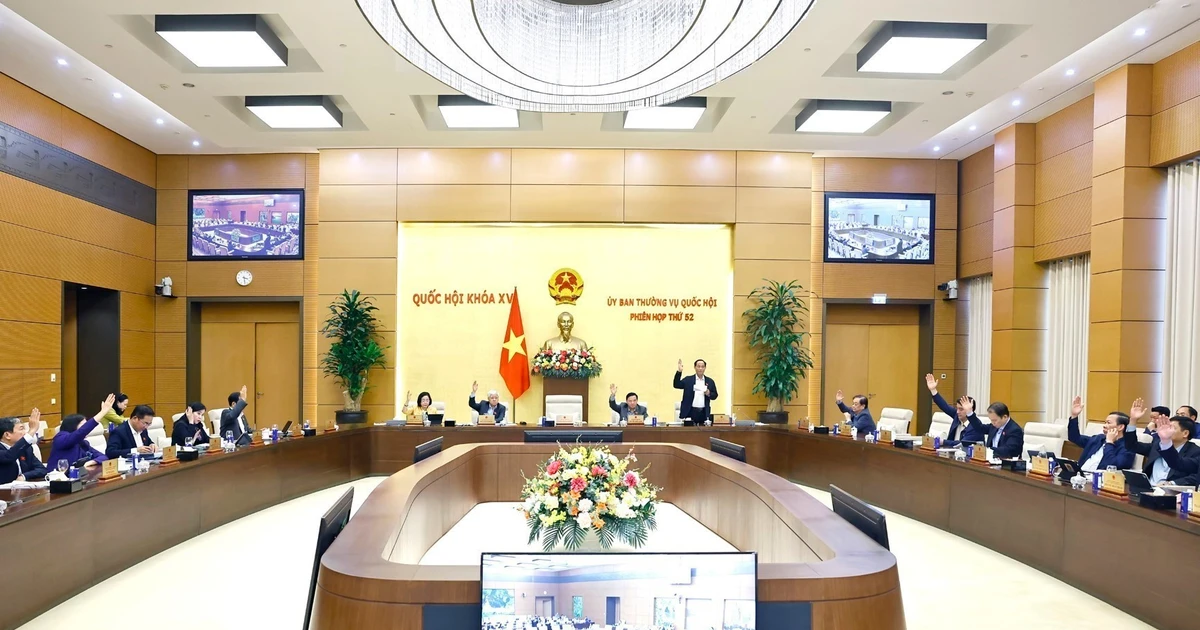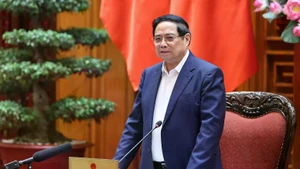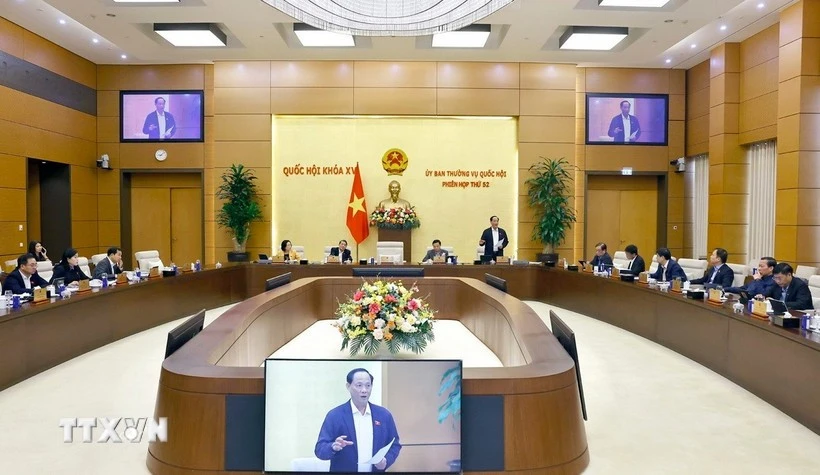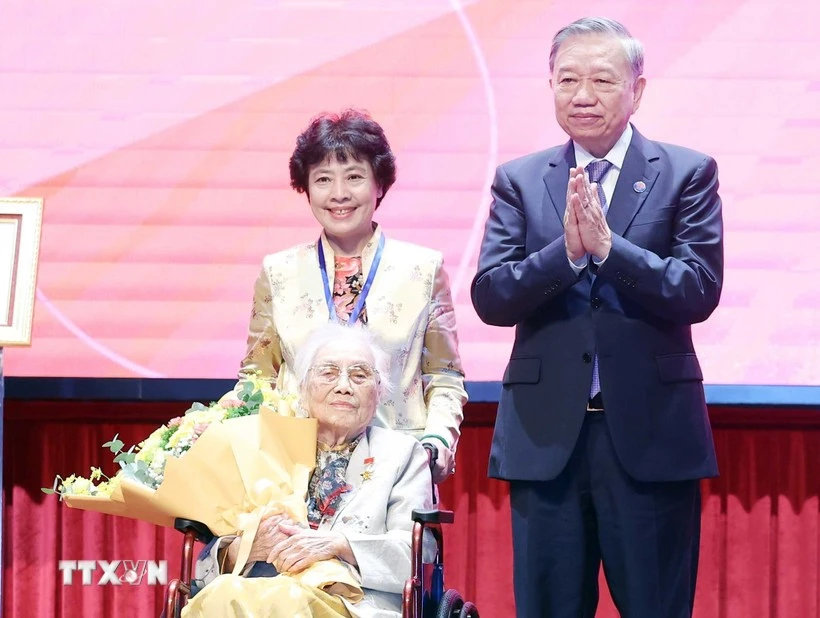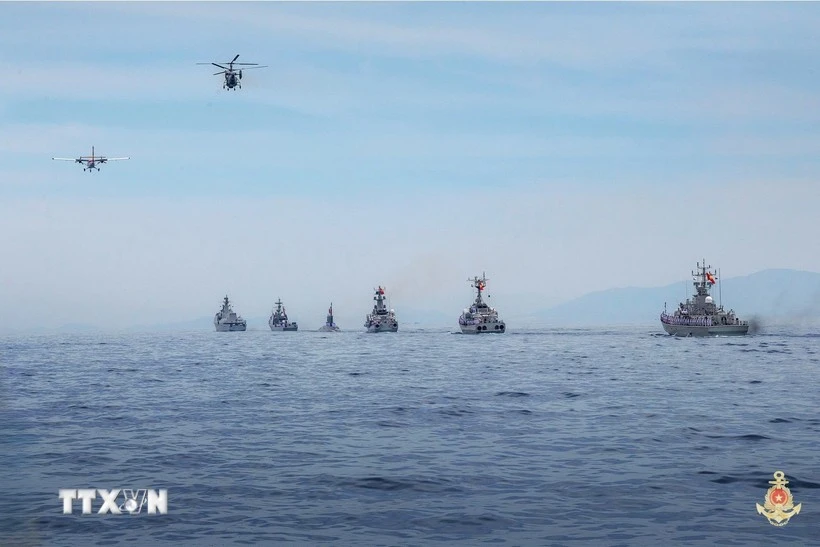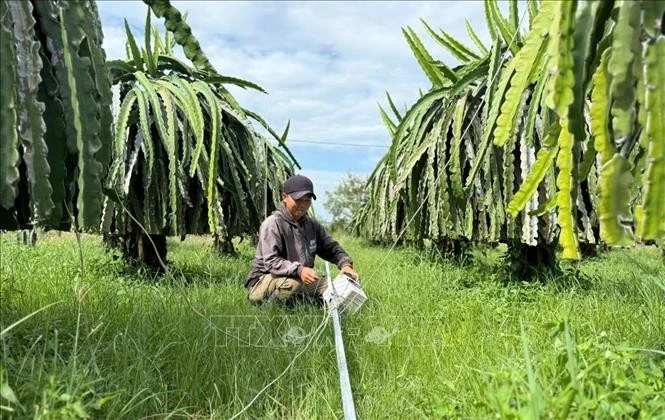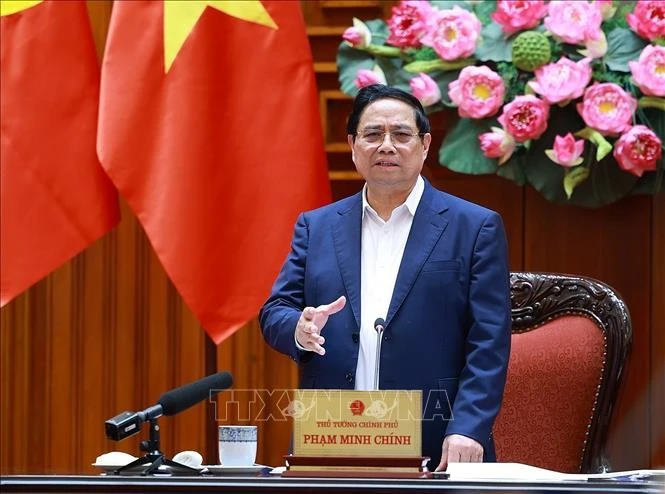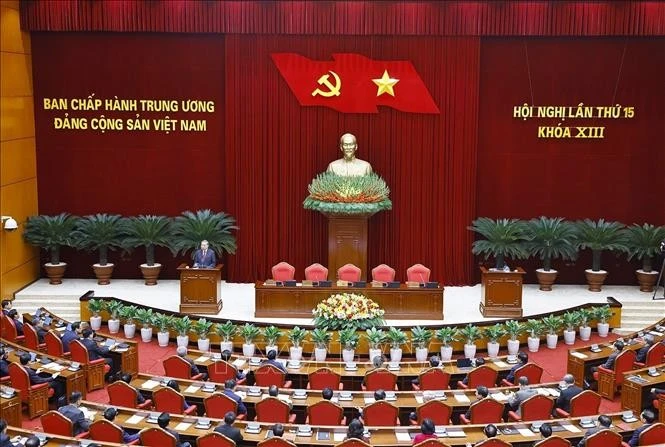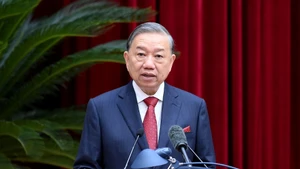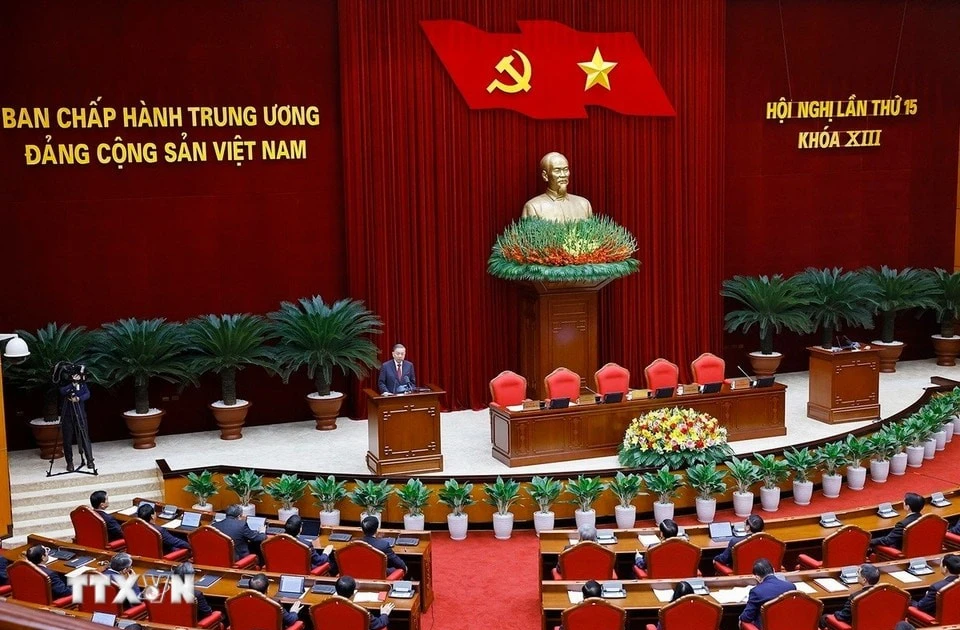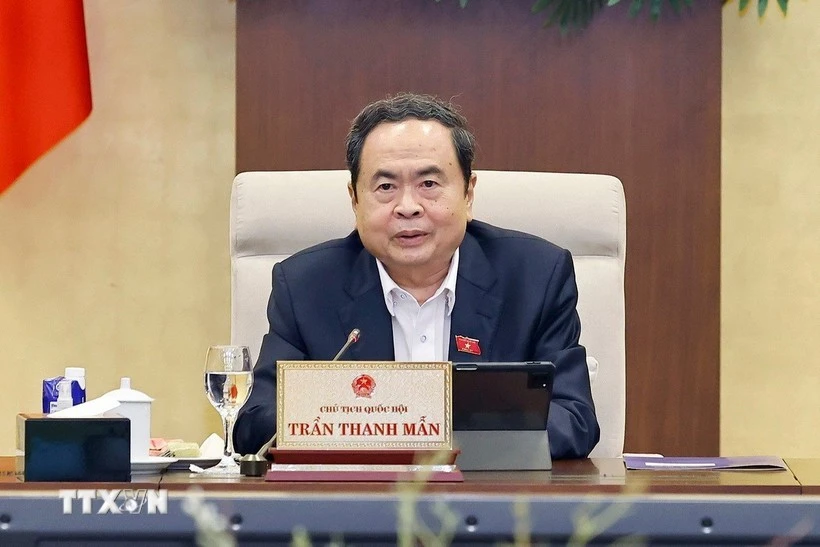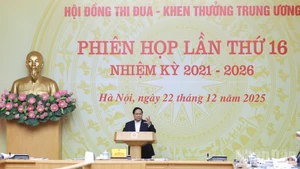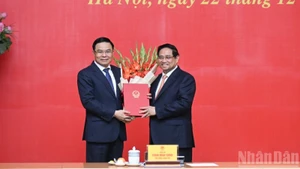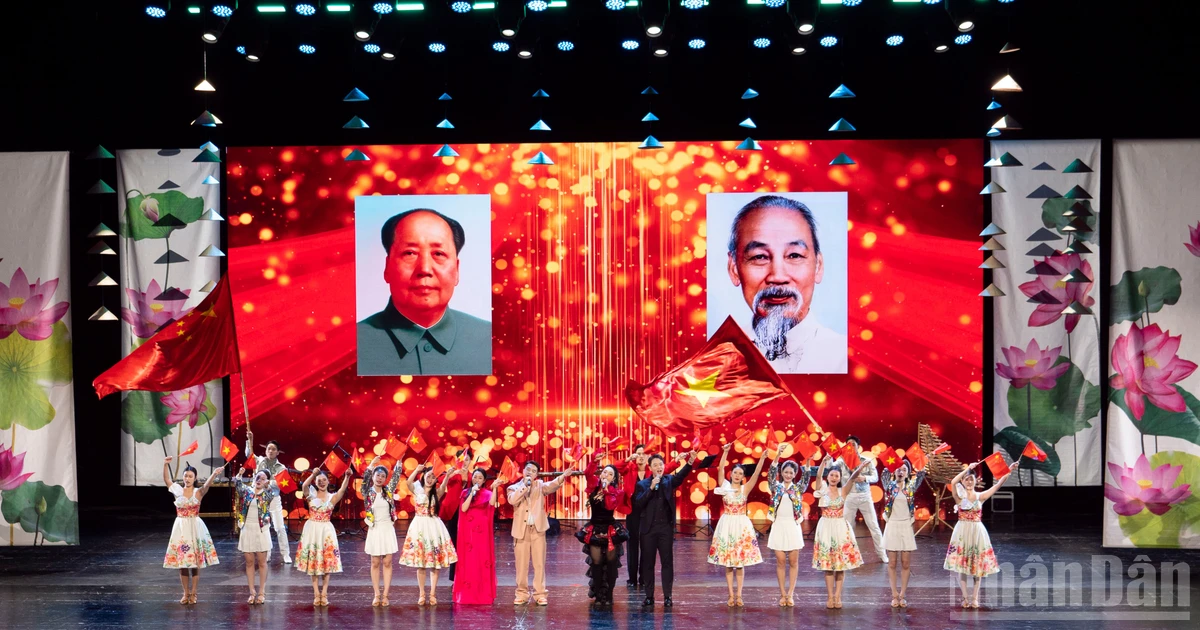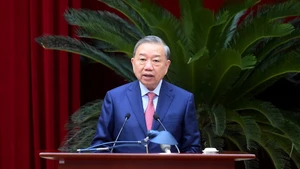Starting at 9:00 AM on May 10, 1965, President Ho Chi Minh began writing the first lines of his sacred Testament. Although his intellect was still sharp and his spirit was clear, he was fully aware of the passage of time. He approached this task with a sense of calm, responsibility, and warmth, leaving us a legacy filled with affection and shining wisdom.
Optimistic and confident, he predicted a victorious future.
President Ho Chi Minh consistently affirmed his unwavering belief in the ultimate victory of the revolution. We can see his "iron" spirit in “The Prison Diary” and many other works of his. In his final Testament, his confidence shines through convincingly. He predicted: “Our struggle against the American aggressors, even if it endures more hardships and sacrifices, will surely lead to complete victory. This is certain.”
The history has proven these prophecies to be entirely accurate. This optimistic vision reflects the sharp intellect and extensive experience of a revolutionary who held absolute belief in the invincible strength of the people, in the inevitable triumph of righteous and humanitarian values, and in the noble dignity of humanity against unjust and brutal wars, and against anything inhumane and reactionary. Prof. Dr. Pham Hong Tung, former Director of the Institute for Vietnamese Studies and Development Sciences, summarised the value of the Testament in three main points: inspiring the entire nation to have confidence in the ultimate victory of the resistance against invasion, which was also President Ho Chi Minh’s lifelong wish for an independent country, free people, and a unified homeland; unity among all people and caring for the happiness of the people, which has been a consistent perspective since the Declaration of Independence; and affirming the role and position of the “ruling party” — a political term first used by President Ho Chi Minh.
Emphasising the Party's responsibility and trust in the power of the people.
Based on his steadfast belief in the ultimate victory, President Ho Chi Minh's Testament addresses issues that the Party and the State need to focus on after the country's reunification. He stated: “The entire Party and people must unite and strive to build a peaceful, unified, independent, democratic, and prosperous Vietnam, and make a worthy contribution to the global revolutionary cause.” To achieve this significant and honourable task, he wrote: “In my opinion, the first thing that must be done is to rectify the Party.” President Ho Chi Minh particularly emphasised the responsibility of cultivating revolutionary morality: “Our Party is a ruling party. Every Party member must truly imbibe revolutionary ethics, be genuinely thrifty, honest, and impartial. We must keep our Party truly clean, worthy of being the leader, and a faithful servant of the people.” The essence of these brief lines is to enhance the leadership capacity and quality of Party members to ensure the Party can meet its responsibilities and complete its tasks.
For the task of rebuilding and developing the country after the war, President Ho Chi Minh highlighted the role, strength, and creative capacity of the people: “It is necessary to mobilise the entire people, organise and educate the people, and rely on the great power of the people.” Prof. Dr. Mach Quang Thang from the Ho Chi Minh National Academy of Politics emphasised: “In his Testament, Uncle Ho addresses eight core issues concerning the Party building and rectification to make it truly clean, strong, and worthy of its leading and ruling role. He raised the people's awareness to a new level with the fundamental view that the people stand at the supreme position in the country's power structure. To follow Uncle Ho’s Testament, attention must first be given to ensuring that words must match actions and to overcoming the four main ailments: talking a lot but doing little; eloquent talk but poor execution; saying without doing; and saying one thing but doing another.”
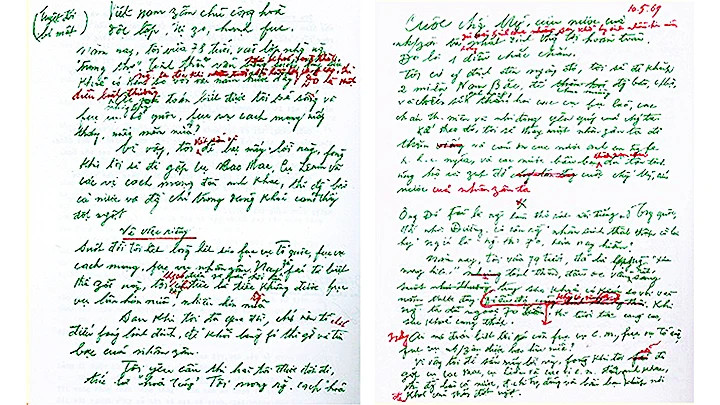 |
| President Ho Chi Minh’s Testament |
The guidance reflects a profound and warm sense of compassion.
The boundless compassion that permeates President Ho Chi Minh's humanistic ideology is evident in his Testament. In May 1968, in an addendum to his Testament, he wrote: “The first task is to take care of the people.” In this addition, he specifically addressed policies for post-war care, emphasising care for war veterans, fallen soldiers, beneficiary families, young people who had proven their courage, women, farmers, and even victims of the old social regime. After victory, he stipulated: “The Party needs to have a good plan to develop the economy and culture to continuously improve the people’s living standards.” He proposed a one-year tax exemption for farmers, urgently healing the wounds of war, rebuilding cities and villages to be more beautiful and decent; restoring and expanding economic sectors; developing sanitation and healthcare; revising the education system; and strengthening national defence.
To accomplish these significant tasks, unity is a prerequisite. Assoc. Prof. Dr. Nguyen Manh Ha, former Director of the Institute of Party History at the Ho Chi Minh National Academy of Politics, noted: “In the Testament, the most striking content is his emphasis on unity, including within the Party, among the people, and internationally. He took pride in unity being an extremely valuable tradition of the Party and our people. Therefore, according to him, ‘we need to preserve the Party’s unity as carefully as we preserve the pupil of our eyes,’ and the best way to reinforce and develop unity within the Party is ‘to practice broad democracy, regularly and strictly conduct self-criticism and criticism’ and ‘to have a spirit of mutual comradeship and love.’”
Like a crane soaring through the sky, heading towards the eternal.
In his Testament, President Ho Chi Minh acknowledged that he was old. However, he was not constrained by the typical biological constraints of age but viewed it with a wise and serene perspective. The word "death" does not appear in his Testament. With a calm and simple demeanour, he spoke of death as the beginning of a new journey. To him, death was a gentle transition: “Even if I must bid farewell to this world now, I have no regrets, only sorrow that I could not serve longer and more.” His Testament is deeply humanistic, reflecting a noble heart devoted to the Party building and national reconstruction, filled with love for humanity and concern for the well-being and prosperity of the people. His instructions are imbued with the philosophy of placing the people at the centre, with a spirit of trust in, respect for, and dedication to the people.
Serene and composed in the face of old age and death, with humility, and a profound and boundless love for nature and humanity — these are the noble qualities of cultural celebrity Ho Chi Minh.
For 55 years, we have pledged to fully implement the sacred final words left by President Ho Chi Minh in his Testament. We have made progress in areas such as socio-economic development, improving living standards, and elevating Vietnam's position on the world stage. There are ongoing efforts to complete tasks such as building and rectifying the Party, administrative reforms, democratisation, and institutionalisation of social sectors, and combating corruption, negativity and social vices. The Testament remains a masterpiece of literature, reflecting his love and intellect for the people and the revolution, encapsulating the spirit and direction for the revival and development of the country on the path to prosperity that he instructed us to follow.
